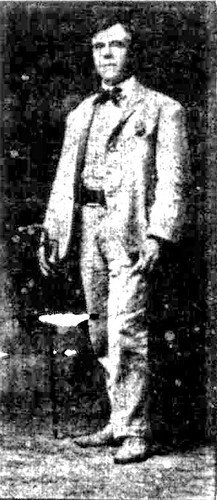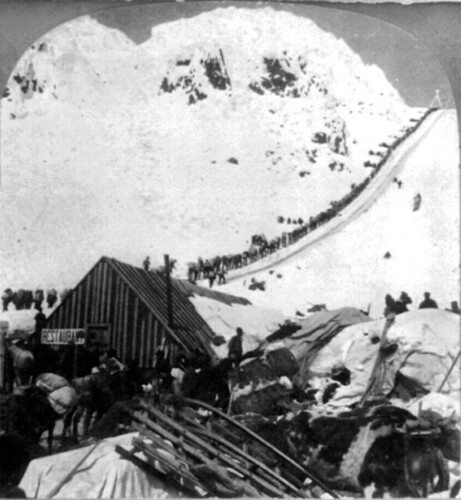Americans have always loved a good excursion and they love health fads even more. Men as varied as Robert E. Lee and Franklin Delano Roosevelt enjoyed a good soak in hot springs. E.R. Moffet, Jr., son of one of the most significant men in Joplin’s history, engaged in a soak at Hot Springs, Arkansas at the turn of the century. As his descriptive letter indicates, not everyone enjoyed their experience at the baths.
“Editor of the Joplin Daily Globe:
Hot Springs Ark. Nov. 20 —
I arrived here yesterday and thought I would give you my views of the place and express my opinion of the first bath.
I took my choice of some 15 bathhouses situated upon the U.S. reserve and, fortifying myself against surprise, I boldly opened the door and there I met a man behind a counter with a 55 cent smile and a bunch of keys with a rubber band to each key. Upon making my wants known, he returned to a row of boxes like the boxes in the safety deposit department of a bank, and drawing out a box, he pushed it toward me.
I told him I did not want it — I came for a bath. He explained that I was to put all my earthly belongings into the box, so, having had to pay for my bath in advance, I had only three coppers and a nickel left, but in they went, and he put the box back and as it locked there I thought I was fleeced. He took one of the keys corresponding to the number of the box and slipped it onto my wrist telling me to let it remain there.
Well, as I had broken the ice, I was open for everything. As each 55 cent bath is entitled to a 15 cent attention I was put in the hands of a son of Africa who knows his business. He assigned me to a certain room to disrobe and gave me a robe to don, and I shortly went forth. Going to the bath, we went through the cooling rooms where some eight or ten men were cooling off. Passing through a door, we come to the finest place I ever saw: marble floors, marble partitions between baths, tubs, all supported with brass and porcelain as clean as could be.
My attendant being a man built on the Jeffries order, I soon saw after getting into the bath I was in for it. I remonstrated, but he said I wanted my money’s worth. After rubbing about all the skin off, he took me to a wire cot, laying me out, wrapped me up, and handed me a cup of hot water saying, “Have one on me.” The water was as hot as coffee and could only be supped, the degree of heat being something near 175 degrees.
While lying there I saw a sign saying, “Ladies in the cave.” I called my attendant and said, “Let’s go to the cave,” but he made me lie still. I kept watching that sign and presently it flopped over and it was the word, “empty.” Then my attendant said, “You can now go to the cave.” I said I was not particular now, but I went.
I found a cave some five feet wide, six feet high, and about thirty feet long, and as hot as hell or hotter. This cave is used for bad cases of heart trouble — love, for instance. The heat in the cave is natural, coming from the rocks, and is a most wonderful thing. It is lighted up and one is not allowed to stay in it over eight minutes.
After returning to the bath room, I was asked if I wanted to take a sweat. As I had sweated only about 5 gallons I thought I could stand a little more so he opened an iron door and invited me to step in. I went and out I came — I thought I was done for. The water in the room was it comes from the ground and steam rises from it all the time. But I managed to get in again and stay. Talk about a Turkish bath! They are not in it. I could only stay a few minutes and then called to be released. Getting out of the sweater, as the cloister is called, I asked what next.
I was led to the shower room where I believe ten thousand small streams of water about the size of a knitting needle shot at you with about 40 pounds of pressure. They came from every conceivable direction and in striking you they sting very sharp. I concluded the thing had gone far enough and I begged for quarter, but my attendant said, “You isn’t near through yet.” I had enough, however, and after having a pound or so more skin rubbed off, I was allowed to go into the first cooling room and presently to my place of starting.
After dressing I went to the office. There the key was removed from my wrist, the box unlocked, and my money turned over to me with the remark, “Call again.” I guess not — I know when I get enough.
E.R. Moffet, Jr.”
Source: Joplin Daily Globe




